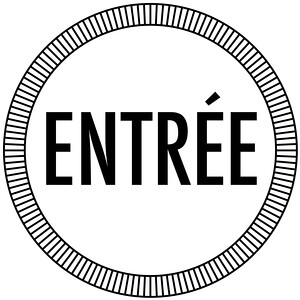Carbon and Captivity
April 16–May 31, 2020
Markeveien 4b
5012 Bergen
Norway
Entrée is pleased to present the online premiere of Oliver Ressler’s new film Carbon and Captivity, on view at e-flux Video & Film from April 16 through May 31, 2020.
For decades, nation states and politicians have proven unable to decarbonize the economy. Oil corporations have funded climate change denial for a quarter century while their own scientists plied them with proofs of disaster. At a moment when most people feel the effects of climate change in their own lives, oil corporations have changed their strategies and are now pushing for the generalized use of technological procedures that would allow them to continue extracting oil whilst claiming to be sustainable.
Carbon capture and storage (CCS) is presented as technofix to prevent catastrophic global warming. The idea is to extract carbon dioxide in the refinery process and to transport and store it in sub-seabed formations. But CCS remains a relatively immature technology: investigations in 2013 showed cracks in North Sea seabed rocks where carbon was stored in field tests. This suggests the likelihood of leakage and the release of carbon into the atmosphere. The technology also requires a huge amount of energy and is therefore far too expensive to be applied on a meaningful scale.
The world’s largest facility for testing carbon capture technologies on an industrial scale is the Technology Centre Mongstad (TCM), 67 km north of Bergen in Norway. This new film by Oliver Ressler was shot there. TCM has operated since 2012 and is a joint venture between the Norwegian state, Equinor, Shell and Total.
The appeal of CCS for the fossil industries lies in the huge new subsidies it promises. The oil and gas should be left in the ground and a fully funded transition to a post-oil economy begun immediately, but the large-scale introduction of CCS would delay the necessary decarbonization, deepening our dependence on the fossil fuel industry. The film’s title refers to humanity’s “captivity” within the logic of capitalism, which seems to carry extractivism onward to the point of no return.
Carbon and Captivity is structured in four chapters, introducing various perspectives through spoken voices. The film interweaves footage shot at and around the Technology Centre Mongstad with a tour through the site, a poetic-political narration text and a dense sound design.
The film was planned to premiere in Oliver Ressler’s solo exhibition at Entrée, but has been moved online due to the current Covid-19 situation. On view at Entrée is a large-scale work by Oliver Ressler, visible to the public on the windows of the gallery located in the heart of the city of Bergen.
Oliver Ressler (b.1970, Austria) is a filmmaker and artist based in Vienna, who works on issues such as economics, democracy, global warming, forms of resistance and social alternatives. He has completed 34 films that have been screened worldwide in thousands of events of social movements, art institutions and film festivals. He had comprehensive solo exhibitions at Centro Andaluz de Arte Contemporaneo – CAAC, Seville; Wyspa Institute of Art, Gdansk; Lentos Kunstmuseum, Linz; MNAC – National Museum of Contemporary Art, Bucharest; SALT Galata, Istanbul and at Cultural Centre of Belgrade. Ressler has participated in more than 350 group exhibitions, including Museo Reina Sofía, Madrid; Centre Pompidou, Paris; the biennials in Prague (2005), Seville (2006), Moscow (2007), Taipei (2008), Lyon (2009), Venice (2013), Quebec (2014), Jeju (2017), Kyiv (2017), Gothenburg (2019), Stavanger (2019), and at Documenta 14, Kassel, 2017 (exhibition organized by EMST).
Entrée (est. 2009) is an independent, non-profit gallery in Bergen, Norway, devoted to the commissioning and production of new work by local and international artists. The gallery is centrally located in Markeveien 4B, a 1920s building by architect Ole Landmark.
For further information and press inquiries, contact Randi Grov Berger at entree.randi [at] gmail.com.






